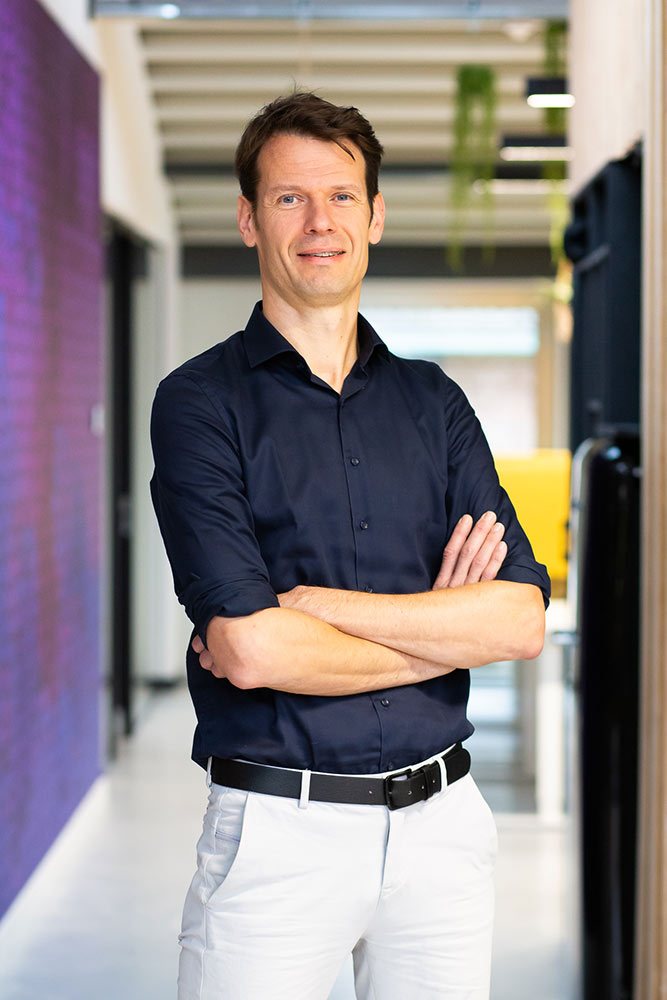AI in healthcare goes slowly compared to other sectors — until it has to.
During the masterclass “Data & AI for Healthcare”, organised by Dutch Health Hub and Health~Holland, our CEO Jeroen de Haas showed why AI often fails to get off the ground… and what is needed to make a lasting impact.
From hype to practice
AI is a hot topic in public debate, but according to Jeroen, it’s not just about technology. Ownership and responsibility are crucial for the reliable use of AI within organisations.
Data is increasingly becoming an asset. And every asset needs an owner.
Jeroen observes that many organisations are not yet ready for the successful implementation of AI. He mentions five important reasons why AI projects fail – and these are more often related to people and processes than to technology:
- The wrong people in crucial (and costly) positions.
- Poor data quality.
- Underestimating reality.
- IT as a bottleneck with an excessively long time-to-market.
- Resistance to change.
If it has to be done, it can be done
It can be done differently, as demonstrated by the healthcare sector during the coronavirus pandemic. In 2020, Pipple carried out a strategy project for the Jeroen Bosch Hospital. The report was left on the shelf — until the coronavirus outbreak. Within a week, the team had developed a planning tool. ‘It just had to be done. That shows that if it has to be done, it can be done.’
At Tzorg, Pipple created a planning solution that is now continuously used within the organisation. ‘Legislation, technology and business processes are constantly changing. You are never finished. Building something externally and transferring it does not work if there is no internal capacity to continue developing it.’
Ethics, trust and craftsmanship
AI also affects the human side of healthcare. Nowadays, it is relatively easy to have a chatbot summarise patient files. This is useful, but also risky. What information is filtered out? And does this mean you are relinquishing some of your professional expertise?
That is why Jeroen advocates co-creation: developing AI together with healthcare professionals. Only then can a pilot project grow into something lasting.
Analysts do not know the reality, those on the work floor do.
The next step in AI
Whereas AI currently mainly supports tools, we are moving towards agents that perform tasks and make choices independently. But one thing remains unchanged: ‘Adaptability and risk appetite of organisations play an important role when it comes to implementing AI.’
You can read the full retrospective on the masterclass in the article by Dutch Health Hub. Curious to find out how Pipple helps more organisations in healthcare with sustainable AI applications? Discover it on our healthcare page.

